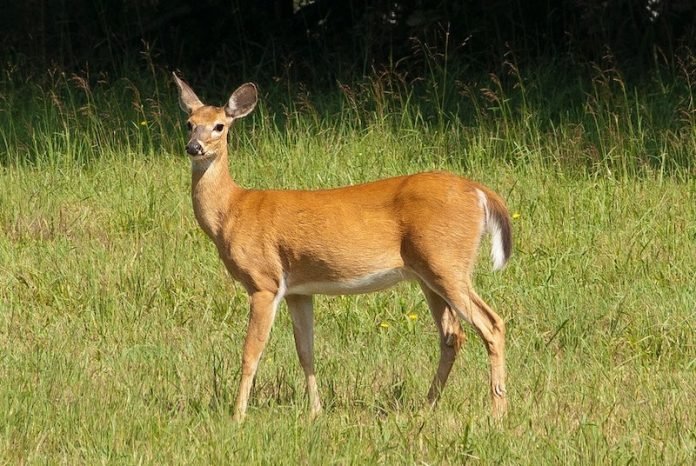
In a new study from the University of Texas at El Paso, researchers confirmed that some white-tailed deer in Texas have COVID-19.
Researchers have been alarmed by the prospect of deer becoming new hosts for COVID since July.
At the time, the U.S. Department of Agriculture found antibodies in white-tailed deer in Illinois, Michigan, New York and Pennsylvania.
The team suggests that deer should not be overlooked as a possible source of SARS-CoV-2 infection among people as well as domestic and wild animals.
In the study, the team examined blood samples collected from deer of various ages in Travis County, Texas, during the first two months of 2021.
More than one-third of the samples showed evidence of SARS-CoV-2 neutralizing antibodies.
They found a strong prevalence among deer that was 1.5 years old. The researchers said this indicates that the disease is rampant among one of the most abundant wildlife species, particularly among males.
The 37% antibody prevalence was seen in this study is similar to the 40% reported in deer in the other states.
The findings raise many questions about infection and transmission of the virus among wild and domestic animals.
The researchers are still trying to learn how COVID is transmitted between people and animals.
If you care about Covid, please read studies about why smokers have a lower risk of COVID-19,
and drug that could inhibit COVID-19 virus, help treat infections.
For more information about the health, please see recent studies about new risk factor for severe COVID-19, and results showing COVID-19 booster shots prompt stronger, longer protection than original shots.
The study is published in the journal Vector-Borne and Zoonotic Diseases. One author of the study is Douglas Watts.
Copyright © 2022 Knowridge Science Report. All rights reserved.



